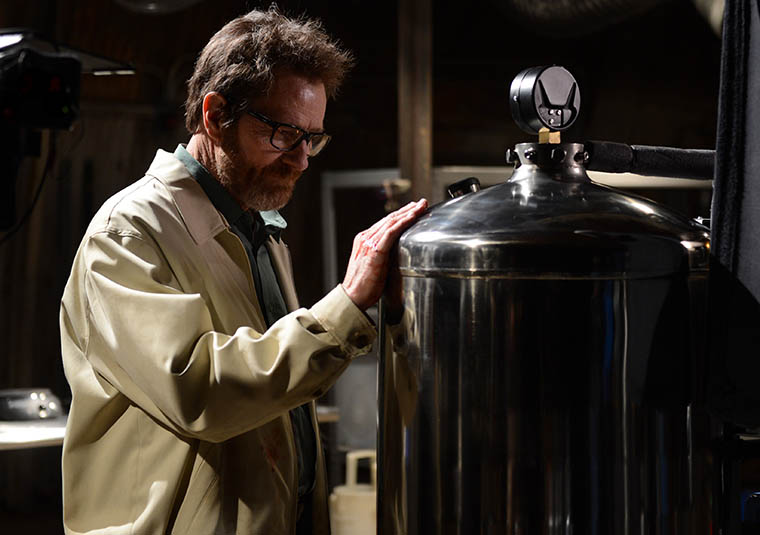
This ending is a part of TV history now.
(Spoilers ahead.)
Walter White, mortally wounded, alone. His hand on the machinery he’d been using to demonstrate his immense talent for cooking meth. The Felina episode script has two great lines to describe the unique and deep relationship between the man and the meth lab: “Walt is back where he belongs. He’s back with his True Love”; and “Walt’s hand rests against it [i.e., against the cooking vat] like a cowboy’s hand rests on the neck of his horse.” His last moments before passing away.
The decisive beat of the episode (and of the series) occurs minutes before, though, when Walt confesses to his wife, Skyler, that through everything he’s finally attained what he deeply needed: to feel alive. The many difficult circumstances that forced him down a dark path are thus finally revealed to be propitious.
Laurie Hutzler offers an incisive commentary on this passage: “I suspect that given the choice, even knowing exactly what the end would be, Walter White would do it all again. […] White’s moment of clarity in the finale reminds me of the line from Paradise Lost — “Better to reign in Hell, than serve in Heaven.”
So one could say: Breaking Bad’s ending is a glorification of the antihero. What we get is the satisfaction that Walt has reached his true self.
Yet that would be simplistic. Just think of the other caress we see in the episode. The one Walter gives to his sleeping daughter… The pain of the farewell, the final separation from the better part of himself…
In fact, the tragedy of Walter’s ending was an issue debated in the writing room of the series, as you can read in this enlightening Q&A with the screenwriters of Breaking Bad.
My suggestion is to read it while keeping in mind what a great scholar of contemporary TV suggests is the difficult task a long-running antihero drama should accomplish in its finale: “Antihero conclusions are extraordinarily difficult, as they must provide a motivated end to a complex character arc, payoff serialized arcs that reward viewers’ dedication, and offer (or actively refuse) a moral position toward the character’s behaviors” (Jason Mittell, Complex TV, New York University Press, 2015, p.148).

Be First to Comment